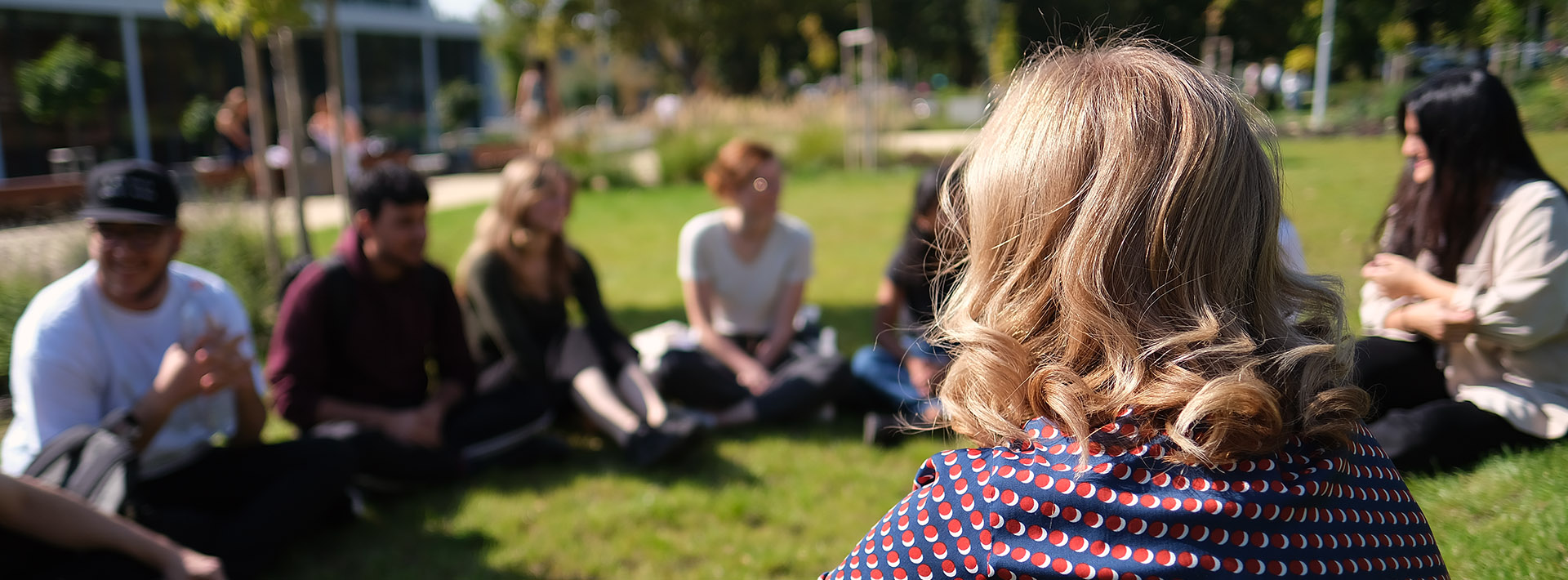Daten
Offizielle Daten in der Fachveröffentlichung für das folgende akademische Jahr: 2024-2025
Lehrbeauftragte/r
-
Eklicsné Lepenye Katalin
assistant professor,
Department of Languages for Specific Purposes -
Semesterwochenstunden
Vorlesungen: 0
Praktika: 0
Seminare: 24
Insgesamt: 24
Fachangaben
- Kode des Kurses: OAF-NSM-T
- 2 kredit
- General Medicine
- Optional modul
- both
OAR-HUF-O-T finished
Zahl der Kursteilnehmer für den Kurs:
min. 5 – max. 15
Thematik
The course Taking neurological history with simulated patients in Hungarian aims to develop specific language and communication skills of 4th and 5th year students in Hungarian to enable effective patient interview and giving instructions during physical and diagnostic imaging examinations needed for clinical practice.
Vorlesungen
Praktika
Seminare
- 1. Questions of general internal medical history – frequent answers, video-based comprehension exercises
- 13. Psychological changes caused by neurological diseases – questions and answers
- 2. Taking general medical history through simulation practices
- 14. Psychological changes caused by neurological diseases through simulation practices in Hungarian, case presentation in English
- 3. Major differences in taking general medical and neurological history- introductory role-plays
- 15. Patient interviewing in speech pathology and examination-related instructions-phonetic exercises in Hungarian
- 4. Patient interviewing in neurological outpatient departments- situational exercises
- 16. Patient interviewing in speech pathology and examination-related instructions through simulation practices in Hungarian, case presentation in English
- 5. Headache-related terms and examinations
- 17. Instructions related to examinations of neck movements – phonetic exercises in Hungarian
- 6. Headache-related terms and examinations in simulation-based interactions in Hungarian, case presentation in English
- 18. Instructions related to examinations of neck movements – through simulation practices
- 7. Symptoms related to sensation – questions and examinations
- 19. Instructions related to examinations of the musculoskeletal system– phonetic exercises in Hungarian
- 8. Symptoms related to sensation – questions and examinations – through simulation practices
- 20. Instructions related to examinations of the musculoskeletal system through simulation practices
- 9. Questions related to weakness, uncertainty, stiffness and clumsiness, listening comprehension exercises
- 21. Revision of neurological and family history questions and instructions of patient examination – comprehension exercises
- 10. Questions related to weakness, uncertainty, stiffness and clumsiness, listening comprehension exercises – answers in simulated scenarios
- 22. Revision of neurological and family history questions and instructions of patient examination – through simulation practices in Hungarian
- 11. Revision
- 23. End-of-term test – comprehension exercises
- 12. Mid-term test
- 24. End-of-term test – simulated patient interviewing in Hungarian in small groups, case presentation in English
Materialien zum Aneignen des Lehrstoffes
Obligatorische Literatur
Vom Institut veröffentlichter Lehrstoff
A practical coursebook edited by the instructors providing English-Hungarian vocabulary.
Skript
Empfohlene Literatur
Voraussetzung zum Absolvieren des Semesters
One mid-term test and min.3 patient interviewing and examination in Hungarian are compulsory.
Semesteranforderungen
Mock exam with simulated patients (patient interviewing and examination with Hungarian instructions).
Möglichkeiten zur Nachholung der Fehlzeiten
Decided by the instructor.
Prüfungsfragen
Questions of taking general history
Neurological history including:
• Headache.
• Numbness, pins and needles, cold or warmth.
• Weakness, unsteadiness, stiffness or clumsiness.
• Nausea or vomiting.
• Visual disturbance.
• Altered consciousness.
• Psychological changes - e.g., agitation, tearfulness, depression or elation, sleep disturbance.
• For children, ask about performance at school.
• Loss or gain in weight
Instructions related to examination of the:
- speech
- neck/eye
- sensory system
- motor system (reflexes)
Prüfer
Praktika, Seminarleiter/innen
- Eklicsné Lepenye Katalin
- Karádi Zsófia Nozomi
- Szalai-Szolcsányi Judit
